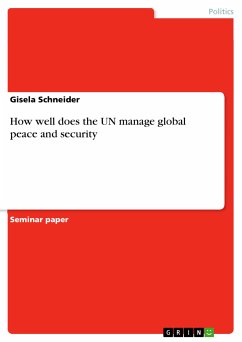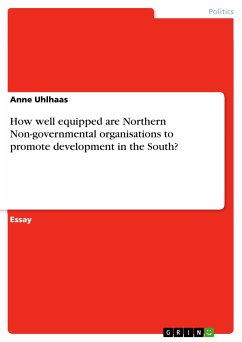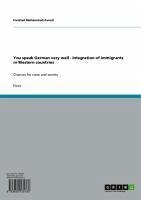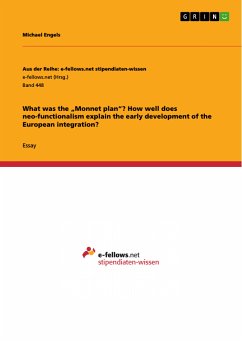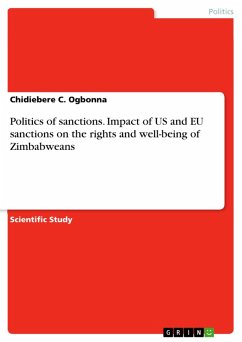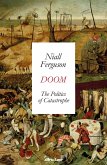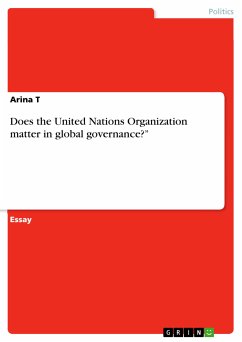Seminar paper from the year 2002 in the subject Politics - Topic: International Organisations, grade: 1 (A), Southern Cross University, Lismore (Politics), course: Peace, War and International Politics, language: English, abstract: The United Nations (UN) was established in 1945 by the five victory powers of World War II - China, France, the United Kingdom, The United States of America and the former Soviet Union to maintain the post-war peace. Its Charter was drawn up by representatives of fifty countries and ratified by the original and permanent members. According to Article 1 of the Charter, the UN's primary purpose is "to maintain international peace and security, and to that end: to take effective collective measures for the prevention and removal of threats to the peace"1. Today, 191 states are members of the global organization and subscribe themselves to the UN Charter to share the responsibility for international peace and security. The Charter established six principle organs, of which the Security Council is the most important with the primary responsibility to settle different kinds of conflicts to maintain the global peace and security. While other organs make recommendations to governments, the Council alone has the power to take decisions and initiate actions including the use of force, which Member States are obligated under the Charter to carry out. The Security Councils consists of 15 Member States: the five permanent ones, which can veto any draft resolution on substantive matters reflecting the assumption that the major powers would act together to provide collective global security, and ten non-permanent members elected for two-year periods. When a complaint concerning a threat to peace is brought before it, the Council usually recommends the parties several peace-making methods like negotiation, investigation or mediation to reach agreement by peaceful means. When a dispute gets worse or leads to fighting it is empowered to call for cease-fires, order economic sanctions, and even authorize military action against an aggressor on behalf of the UN. One tool for maintaining international peace and security not embodied in the Charter is the use of peacekeeping forces to prevent existing dispute from reigniting "using force only in self-defence, and operating in a neutral and impartial way with the consent of the parties to disputes"2. Unfortunately, administrative and budgetary constraints limit the UN's capacity to respond to every serious threat to peace. [...] 1 "United Nations, Divided World - the UN's Roles in International Relations", 1996, p.500.
Dieser Download kann aus rechtlichen Gründen nur mit Rechnungsadresse in A, B, BG, CY, CZ, D, DK, EW, E, FIN, F, GR, HR, H, IRL, I, LT, L, LR, M, NL, PL, P, R, S, SLO, SK ausgeliefert werden.

